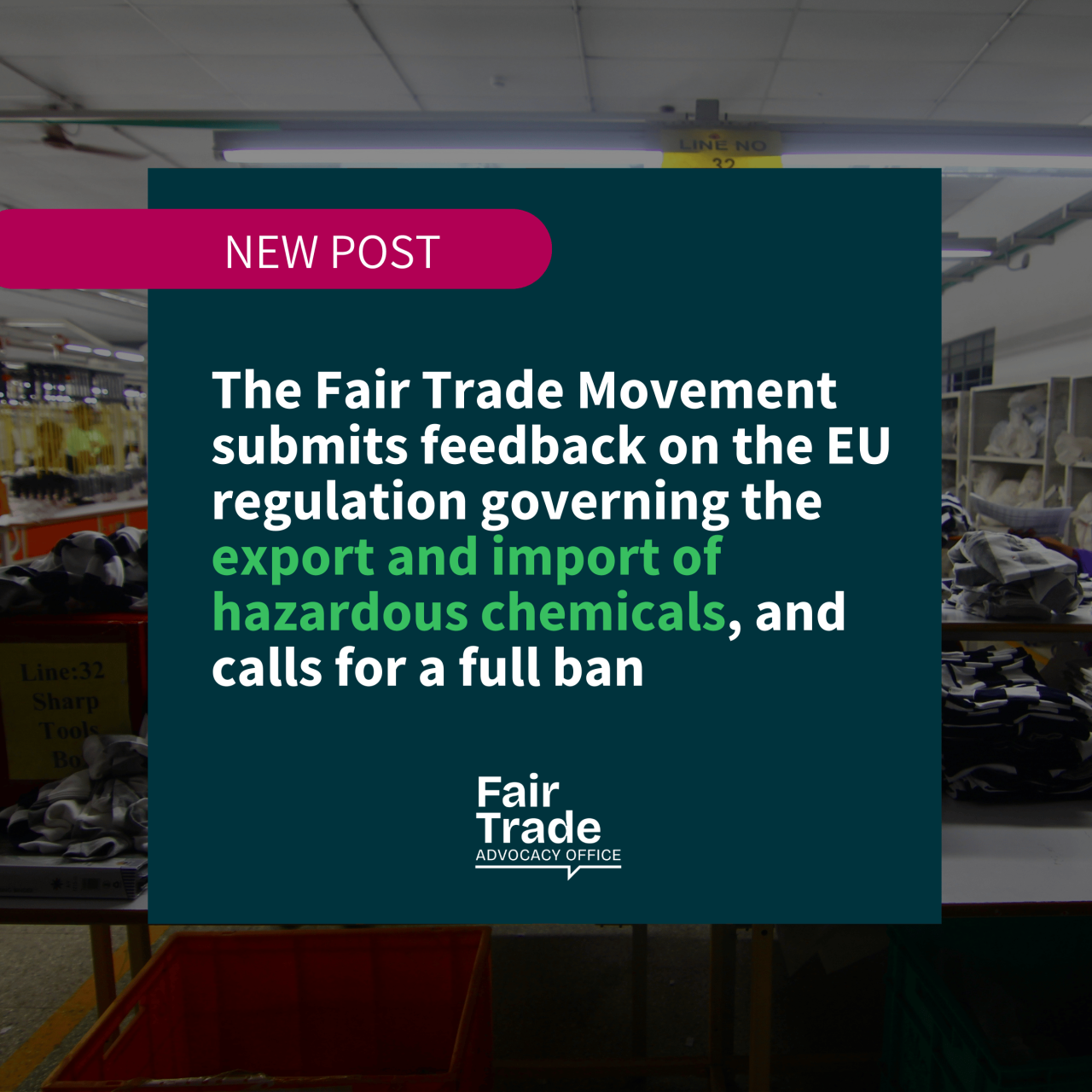Sustainable Agri-food Systems
The foundation of a thriving planet and resilient communities lies in how we produce, distribute, and consume food. Sustainable agri-food systems ensure that farming practices protect the environment, support smallholder farmers, and foster fair trade globally. By balancing ecological and ethical practices with economic inclusivity, these systems pave the way for food security, agroecological practices, and equitable opportunities across the agri-food supply chain.
However, challenges persist within the agri-food supply chain. Unfair trading practices, power imbalances, low prices for smallholder farmers, and exploitative labor conditions undermine sustainability. Addressing these issues is critical to building a system that is fair for producers, workers, and the planet.
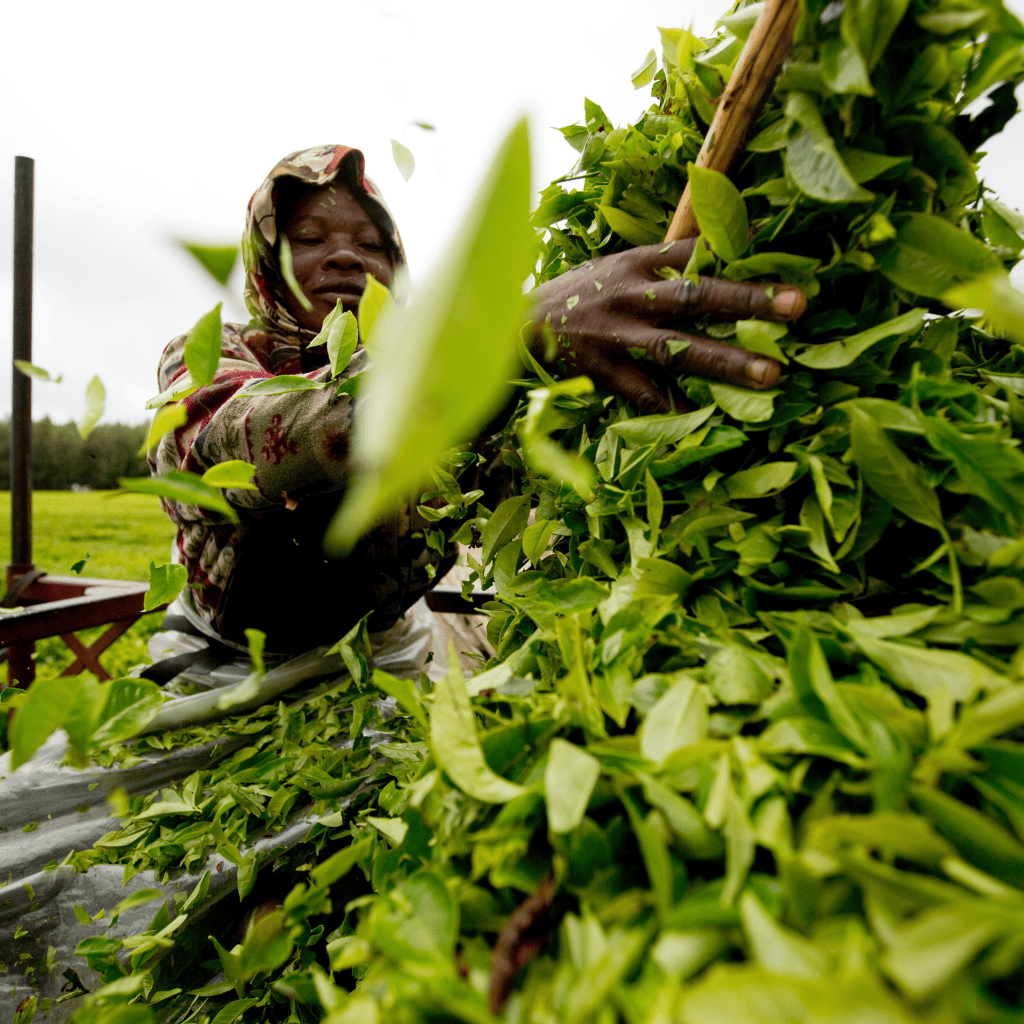
Our View
The EU’s Farm to Fork strategy was a milestone in linking environmental sustainability with socio‑economic fairness in food systems. However, its potential remained only partially realised, especially in delivering transformative equity along agri‑food value chains. The EU’s Vision for Agriculture and Food, published in February 2025, sets a long-term roadmap for a “competitive, resilient, and fair” agri-food system. While it frequently refers to fair supply chains, decent working conditions, and correcting imbalances in the food chain, its emphasis remains on boosting production and competitiveness rather than driving the systemic market reforms needed to deliver fairness, sustainability, and resilience. Positive steps include proposals to ban systematic below-cost selling, strengthen cross-border enforcement of Unfair Trading Practices rules, and introduce a “best value” approach in public procurement to reward quality and sustainability. Yet, businesses and large market actors escape targeted measures, and action to address market behaviour towards farmers is absent.
From a Fair Trade perspective, the Vision misses the chance to embed agroecology, fair incomes, and global trade justice at its core. Its external dimension is weak, with limited focus on smallholder farmers in the Global South and no commitment to align EU trade policy with sustainable livelihoods abroad. While the narrative is encouraging and offers advocacy opportunities, turning words into binding measures, ensuring equitable burden-sharing, living incomes, and inclusive supply chains, will be essential. A resilient food system must value farmers everywhere, reward sustainability in practice, and place social and environmental justice at the heart of EU agri-food policy.
Get in Touch
Need more information? Contact our policy expert!

Virginia Enssle, International & Institutional Relations Manager
enssle@fairtrade-advocacy.orgFurther Reading
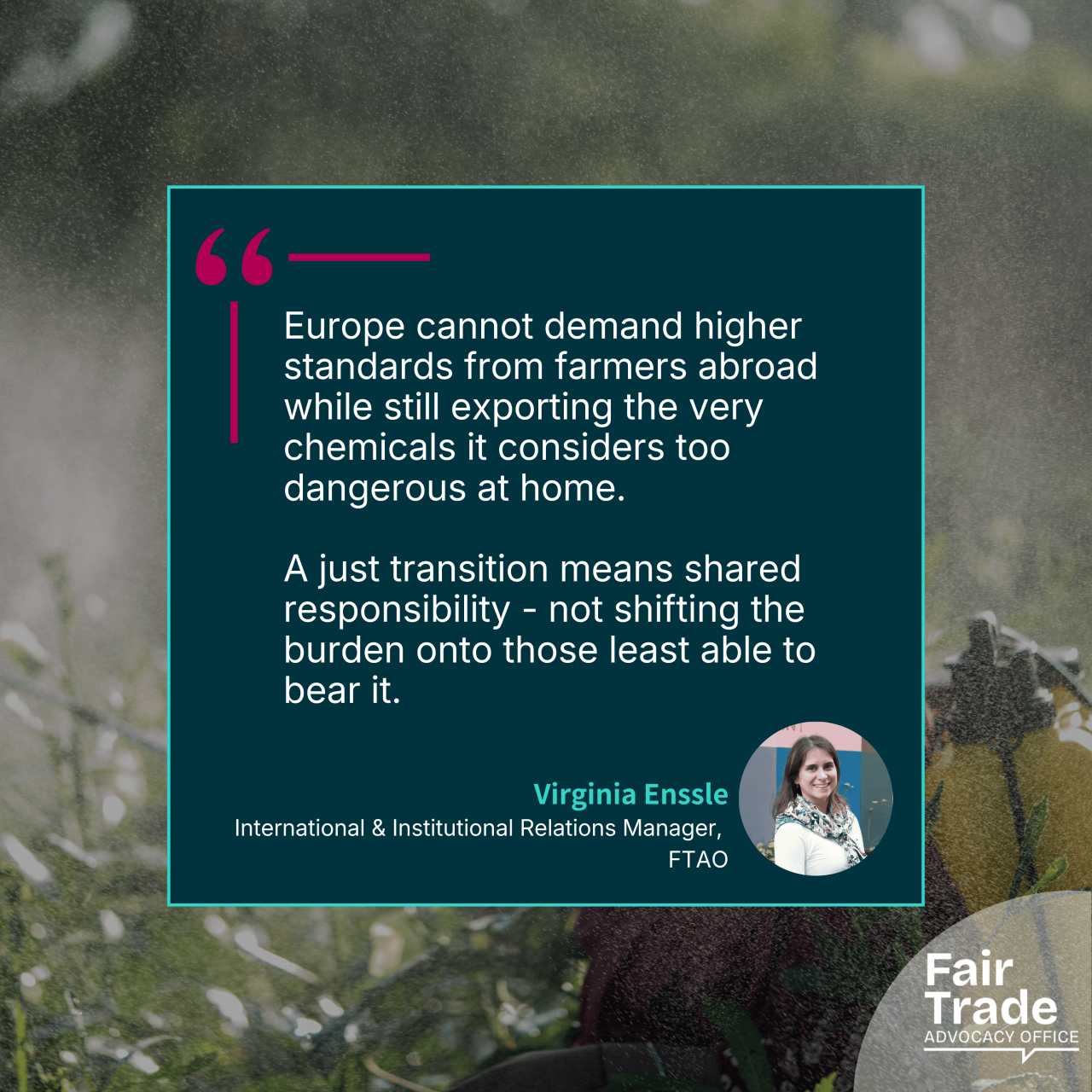
Fair Trade Movement calls on EU to adopt a just, global phase-out of Highly Hazardous Pesticides

The Fair Trade Movement welcomes amendments proposed by the European Commission to group certifications in the EU Organic Regulation
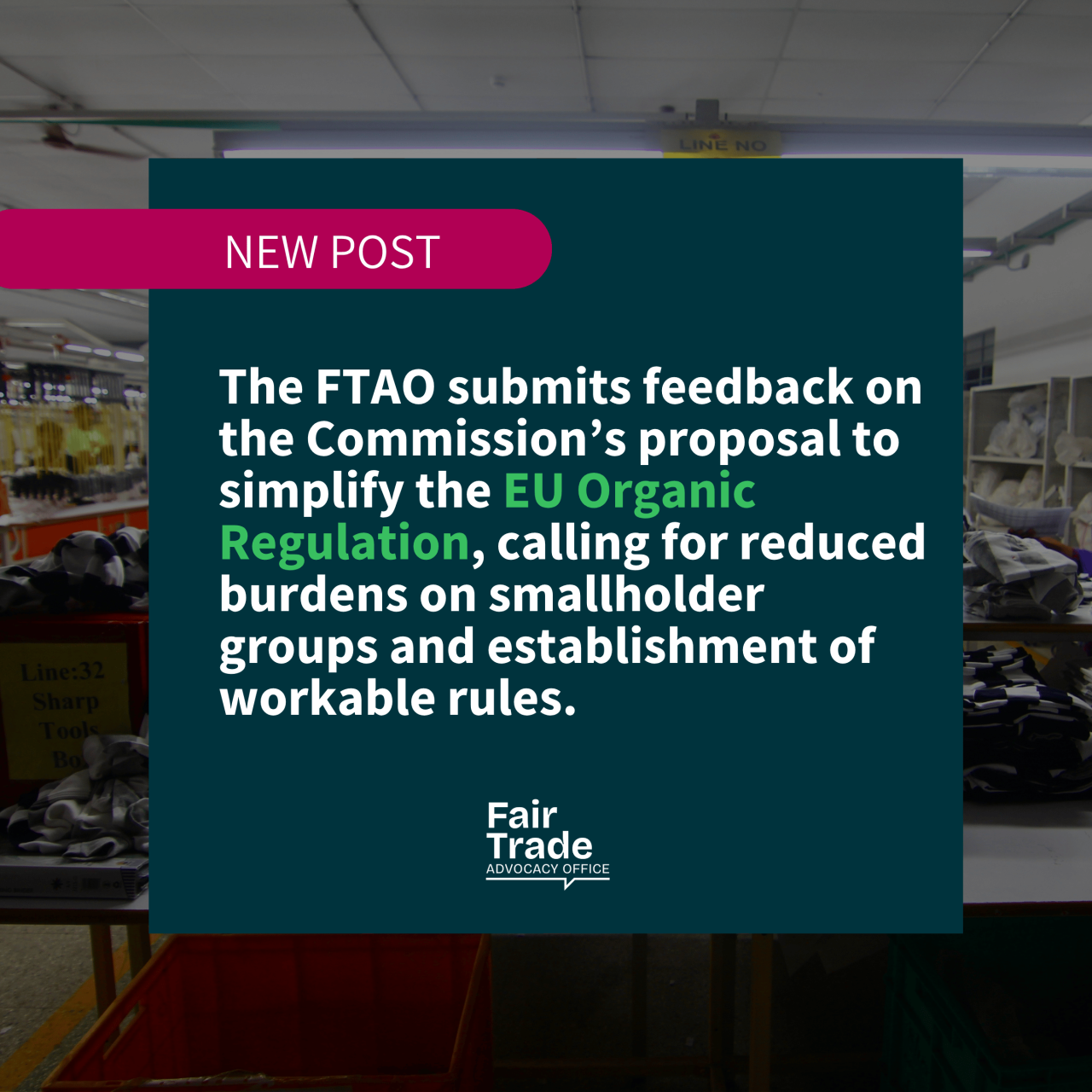
The FTAO's feedback on the European Commission's proposal for the simplification of the EU Organic Regulation
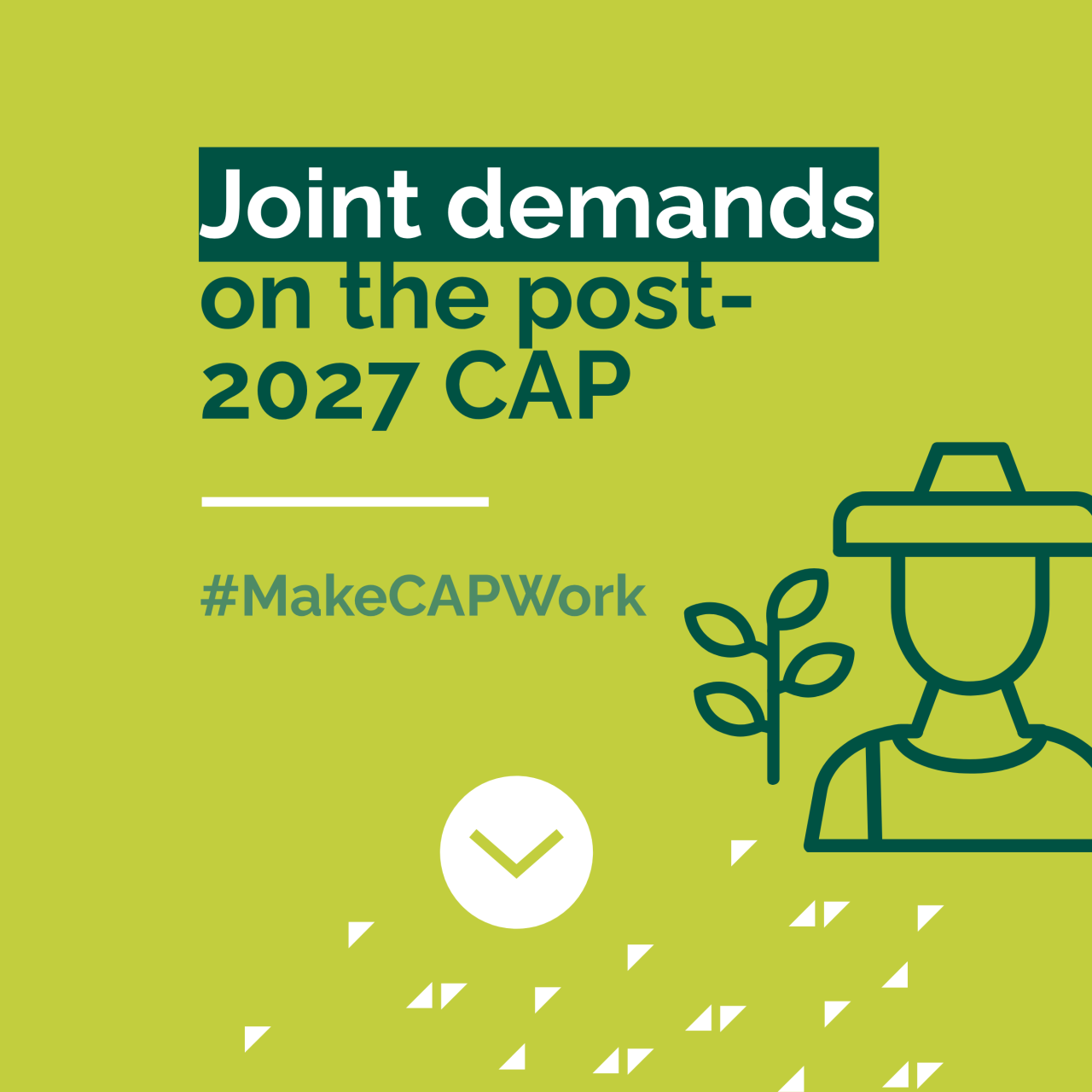
+30 CSOs launch joint demands on the post-2027 Common Agricultural Policy (CAP)
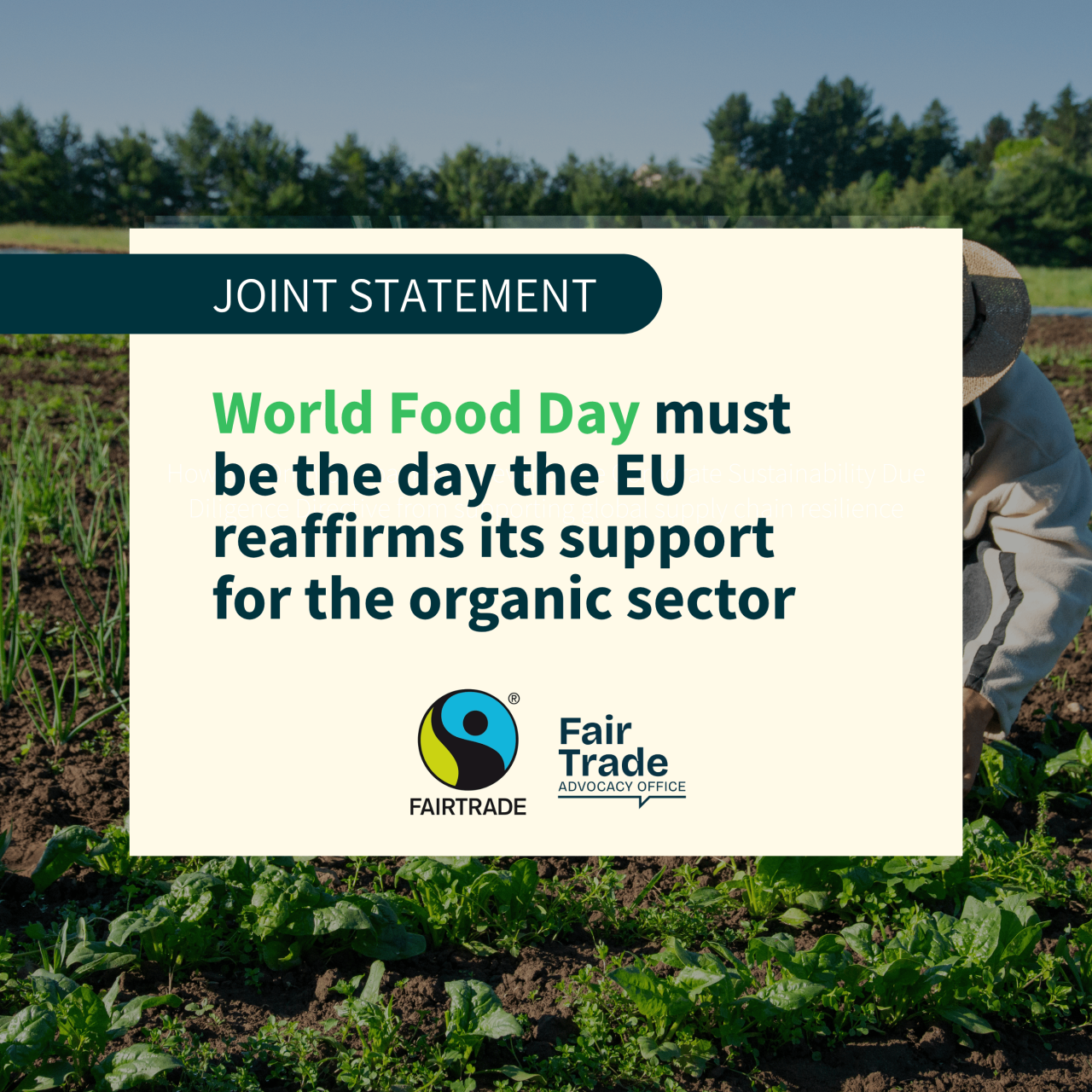
World Food Day must be the day the EU reaffirms its support for the organic sector
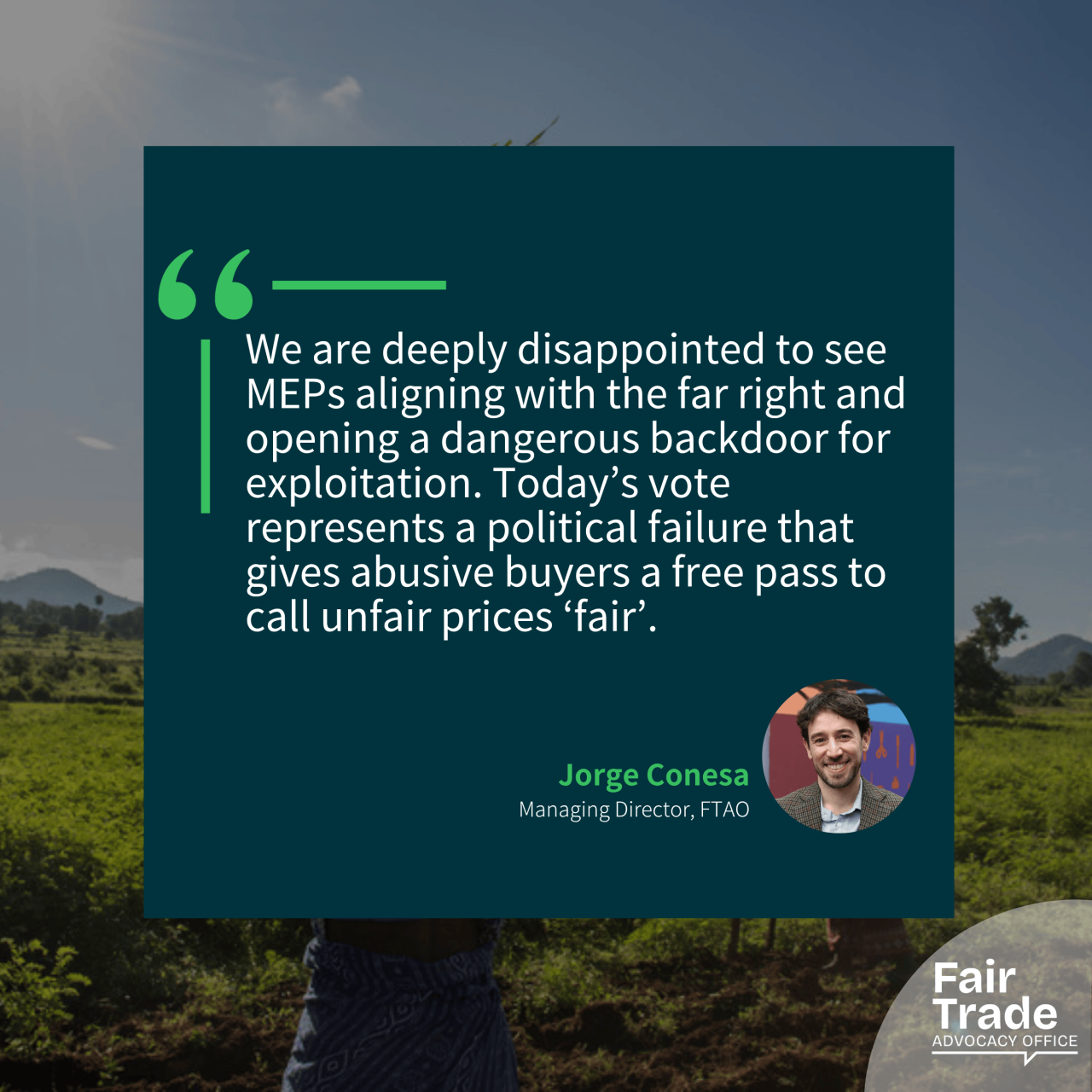
The FTAO condemns the European Parliament's failure to protect farmers: “Fair” must truly mean fair
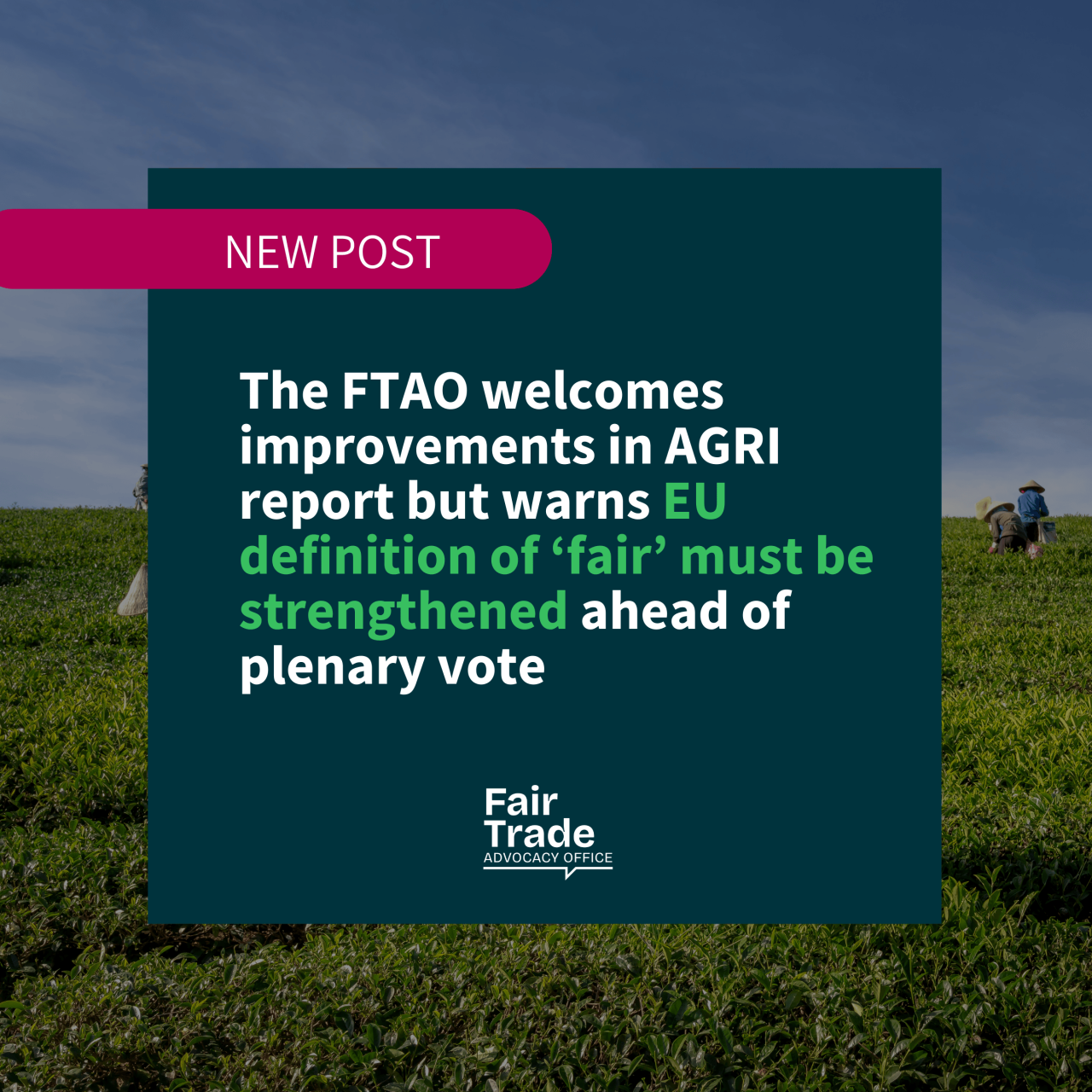
The FTAO welcomes improvements in AGRI report but warns EU definition of ‘fair’ must be strengthened ahead of plenary vote
